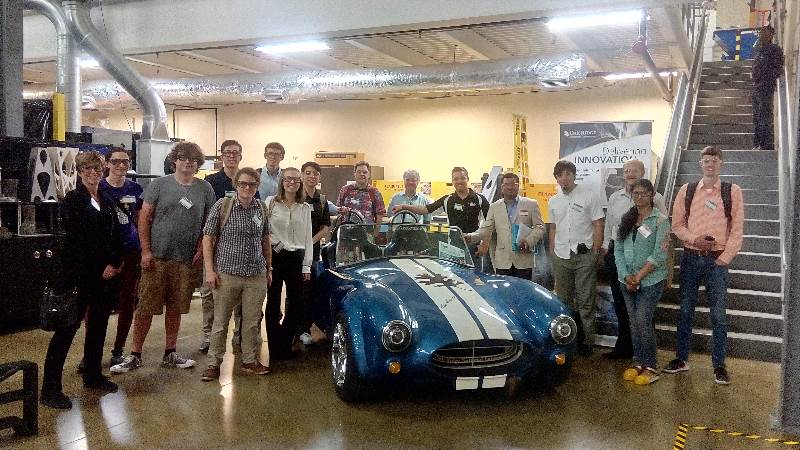Research opportunities are available at Whitworth this summer. The physics and engineering projects offered by faculty in the Department of Engineering & Physics are:
Philip Measor, Ph.D.: Photonics and Biosensing Research. The Microdevices Lab is working towards developing devices with functional elements on the microscale (or the size of a human hair. These devices are based on photonics, the physics of manipulating light at even the single photon level, towards applications in biosensing, or the ability to detect biological material like bacteria or cells. Come join the MicroDevices Laboratory to make very small functional devices. – 2 students (Grad ok)
Kamesh Sankaran, Ph.D.: Simulation of plasma flows in ion-ion propulsion for spaceflight. The goal: design of a new type of plasma thruster for propelling spacecraft that accelerates both positive and negative ions in an alternating sequence. Our computational model aims to accurately describe and predict the complicated plasma oscillation outside the thruster.
OR
Pulsed-Inductive Acceleration for Plasma Propulsion. The goal: understand how mass, momentum, and energy change inside the plasma sheet that is driven by a pulsed-inductive external coil. The work involves analyzing equations describing the deposition of energy from the external coil into the plasma and the conversion of electromagnetic momentum into the acceleration of the plasma.
Projects are supported by NASA-Washington Space Grant Consortium and is conducted in collaboration with NASA Marshall Space Flight Center and, therefore, applicants must be U.S. citizens. – 1 student total
Scott Griffith, M.S. and Kamesh Sankaran, Ph.D.: Optimizing an Asteroid Redirect Mission Using Plasma Propulsion. This project continues the development of simulations to examine variations of the NASA DART mission using the NEXT-C ion thruster. Improve an existing framework to simulate the spacecraft’s mission to verify and optimize the simulation. The work requires high-performance computing and advanced numerical analysis to solve problems in classical mechanics. Students with a background in dynamics, computational methods, and parallelized computing are invited to apply. The code is developed in MatLab, C++, and CUDA. This work is supported in part by NASA-Washington Space Grant, therefore, one student position is limited to U.S. citizens only. – 2 students
Richard Stevens, Ph.D.: Two Degrees of Freedom Stroke Rehabilitation Robot. Programming Assistant: Students will work on developing a user-interface programmed in Simulink Real-Time. Prior experience with Simulink is not required, but programming experience in a computer language is required. – 1 student
Richard Stevens, Ph.D.: Two Degrees of Freedom Stroke Rehabilitation Robot. Human Performance and Rehabilitation Assistant: Student will work on the implementation of a novel stroke rehabilitation robot, including work with stroke patients, simulating a patient for development purposes of the robot and simulating a physical therapist. Student will need to complete online medical ethics training in order to perform work. Some work will be performed downtown at St. Luke’s Hospital. – 1 student
Kent Jones, Ph.D., Basic Research in Quantum Computing. A collaborative research project with Philip Measor and Dr. Ojennus. For this project we intend to make use of Dr. Philip Measor’s 3D printing capability to investigate the possibilities of using quantum dots and/or proteins in quantum computing applications.
Deadline: March 1
Duration: ten weeks
Stipend: Pay is $12.50/hour with an expected 10 weeks at 40 hours per week. Campus housing is available.
Eligibility: Current Whitworth student. Students graduating by May 2020 are not eligible for most projects, only those listed as “Grad ok” (see above).
Link: https://www.whitworth.edu/SummerResearchApp
 Deadline:
Deadline: 

You must be logged in to post a comment.